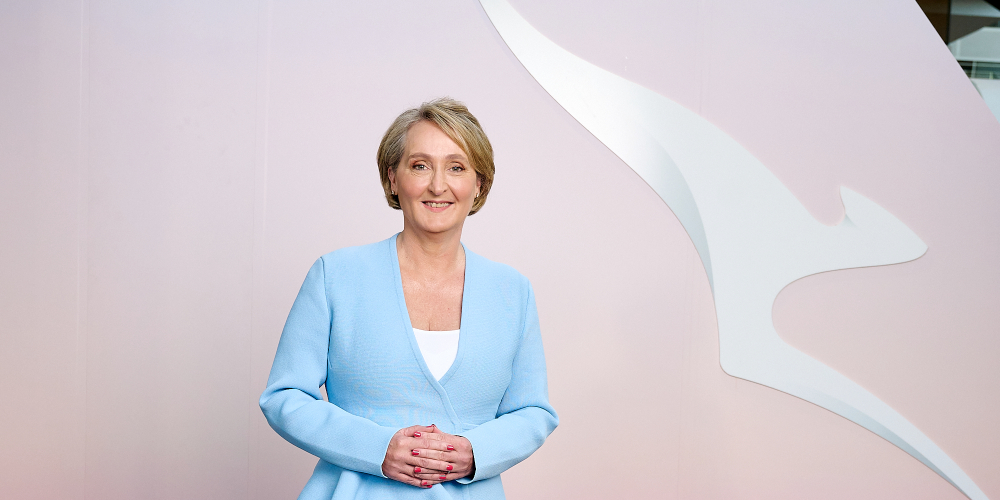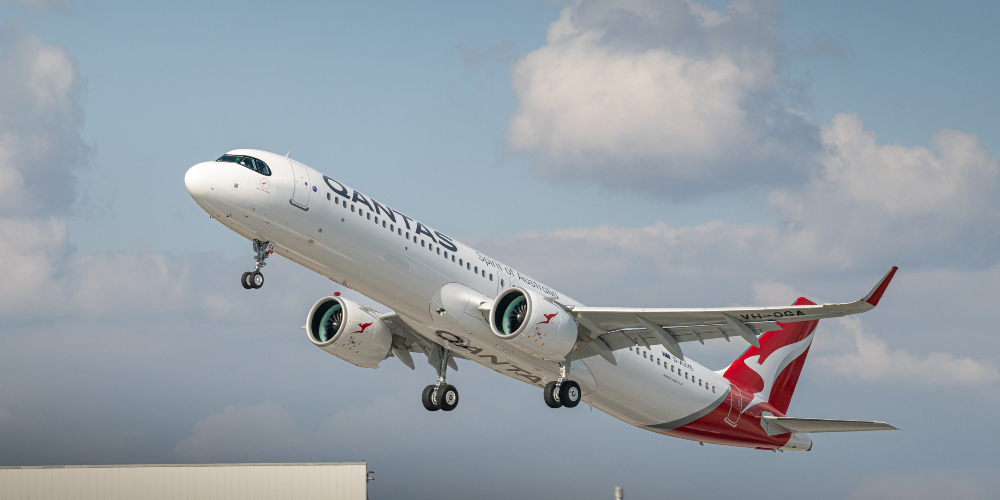Qantas has reported a strong financial result for FY25, underpinned by continued travel demand, improved operational performance, and the benefits of new aircraft entering service.
Speaking at the airline’s Mascot headquarters, Qantas Group CEO Vanessa Hudson said the carrier carried 4 million more passengers across Qantas and Jetstar compared to last year, driven by both corporate and leisure travel.
Corporate travel is now almost back to pre-pandemic levels domestically, while demand for international premium cabins remains high, reinforcing confidence in the airline’s ambitious Project Sunrise ultra-long-haul plans.

Vanessa Hudson
Jetstar also had what Hudson described as “an amazing year,” with 11 new international routes added and nearly one in three customers flying for under $100. The low-cost carrier continues to open up affordable travel, with sales as low as $29 echoing its very first fares 21 years ago.
On the loyalty front, Frequent Flyers earned and redeemed more points than ever before, with the new Classic Plus option driving record Reward Seat bookings.
A major highlight of the results was Qantas’ fleet renewal program. The airline took delivery of 17 new aircraft over the year, including its first Airbus A321XLR. Qantas has also placed an order for 20 more of the fuel-efficient jets, with 16 to feature lie-flat Business Class seats (a first for narrowbody Qantas aircraft) opening new possibilities for routes such as Perth–India and Adelaide–Singapore.
Hudson noted the impact of new aircraft on both customer experience and sustainability goals, with satisfaction scores rising across Qantas and Jetstar. Qantas achieved its best on-time performance since 2019, with more than 80 percent of flights departing on time in the second half, while Jetstar improved punctuality by a further three percentage points.
Employee engagement is also trending upward, with Qantas introducing a non-executive employee share plan providing around 25,000 staff with $1,000 worth of shares annually, tied to company performance. “As Qantas grows and our business improves, all our employees will also directly benefit,” Hudson said.
Hudson also addressed challenges, including rising costs above inflation, the recent customer data breach, and the fallout from the 2020 ground handling outsourcing case. She reiterated her apology to affected staff and confirmed Qantas has implemented all recommendations from the independent governance review, as well as refreshed its leadership team.
Looking ahead, Qantas plans to accelerate its fleet renewal with 36 new aircraft arriving over the next two years, alongside 10 more for Jetstar. Meanwhile, the airline’s long-awaited Project Sunrise remains on track, with the first A350 set to enter final assembly in October – bringing the dream of direct Sydney and Melbourne flights to London and New York closer to reality.
Hudson closed by thanking Qantas’ 30,000 employees, saying: “While we are pleased with the progress we are making, we remain focused on further improving our performance and continuing to deliver for our customers, people and shareholders.”









